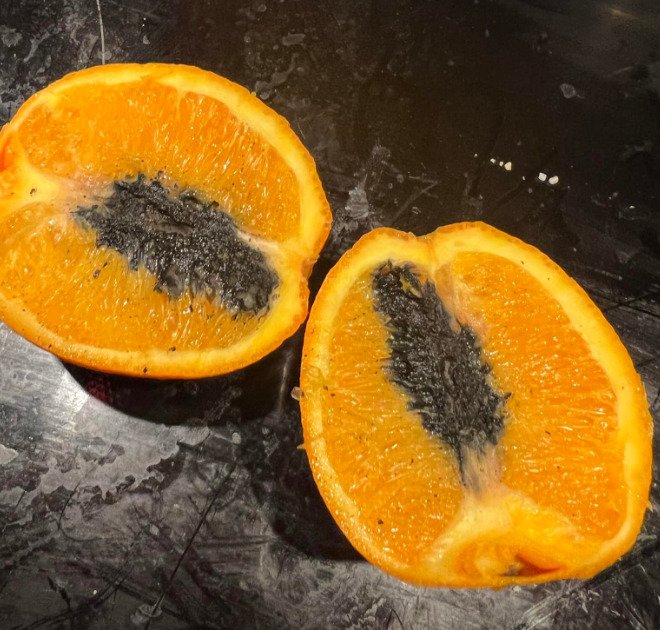The Moldy Orange Mystery
The Unsettling Discovery
Have you ever sliced into a juicy orange, only to find an unexpected black spot inside? Recently, a curious homeowner shared a photo of such an orange in a home tips Facebook group, sparking a lively discussion. The orange had a peculiar black spot and mysterious stuff inside, leaving the homeowner puzzled.
The Fungus Revelation
Closer inspection revealed that the dark substance inside the orange was a type of fungus or mold. This discovery raised an important question: Is it safe to eat an orange with black inside?
The Safety Verdict
The short answer is no. While it might be tempting to salvage the unaffected parts, caution is crucial when dealing with mold due to potential health risks.
The Challenge of Identifying Mold
Identifying mold by sight alone is challenging. Different types of mold appear in various colors, textures, and patterns, making accurate diagnosis difficult for the untrained eye. In this case, the black stain on the orange clearly indicated fungal growth.
